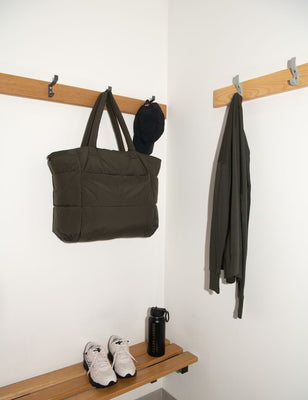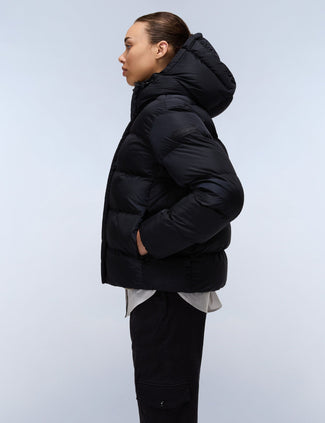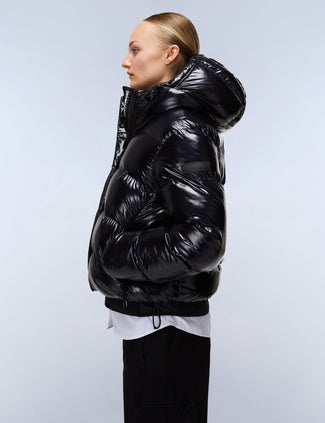
The subject of mental health continues to attract an increasing amount of attention, particularly in recent months as the world continues to navigate such unprecedented times. About 1 in 4 people in England experience a mental health problem in any given year, a statistic which has seen a noticeable surge since the onset of the Coronavirus pandemic, with practically every soul on the planet dealing with heightened uncertainty, worry and isolation.
Of the myriad tools and strategies available to us, alcohol is one of the most reached for coping strategies in the Western world, known for its magical abilities to entertain, distract the mind from worries and take the “edge” off at the end of a long day. Indeed, about a third of the UK population has been drinking more than usual throughout the pandemic in an attempt to cope with loneliness, boredom, higher stress and anxiety.
However, research increasingly points to how problematic this is as a way of coping, and a clear link has been made between drinking and a range of mental health conditions such as low mood, anxiety and even depression. This article explores the incredibly complex dynamic between alcohol and mood and potential signs it may be time to take a closer look at your own relationship between alcohol and mental health.
WHY WE DRINK
You’re probably already familiar with the widely popularised fun, bliss and rock-n-roll effects that having a drink might have on you. By releasing dopamine – a feel-good chemical – alcohol stimulates an area of your brain casually referred to as the ‘pleasure centre’, leading to feelings of happiness, fun, perhaps even euphoria and elation. Meanwhile, by lowering our inhibitions it also makes us feel more confident and chatty, making it the ultimate fun combo when out mingling with the world (virtual, or otherwise).
Indeed, there’s a huge cultural element to alcohol. It is a common staple in the way we interact with people – whether at brunch, a movie night, a date, or a night out with friends, a cheeky drink somehow always finds its way to the table, much like all of life’s big celebrations – weddings, birthdays, anniversaries – usually come with a side of bubbles.
You may also be no stranger to the relaxing effect of a good glass of wine after a long day at work, a tough conversation with a friend or your partner, or indeed any of life’s dramas. Through its ability to ‘mellow’ you out and forget your day’s worries, having a drink can provide much needed comfort in times of heightened stress and anxiety, and possibly even help you drift off to sleep when your highly active mind may otherwise not allow.
Whilst there are many other perceived benefits of drinking, the key thing to highlight is that many are only perceived and there’s a lot more underneath the surface that ought to be considered, especially if you find yourself drinking frequently, or have sensitive mental health chemistry.
NOT THE BOOST YOU THINK IT IS
Contrary to the widely popular belief that alcohol gives you energy, it is actually a depressant, which means it works to slow your entire central nervous system down and with it both your physical and mental functions. This is of course where the ‘relaxation effect’ comes from, however – depending on the amount consumed and your individual sensitivity to alcohol – this relaxation effect can quickly resemble one of sedation and continue to have an impact on you for even a few days after drinking!

Your energy levels and mental wellbeing are closely linked, and what may first seem like just a bit of innocent fatigue (who hasn’t been guilty, eh?), depleted energy stores can quickly start nibbling away at your mental health by making it more difficult to focus and process information, maintain emotional composure and drum up the motivation to follow through on responsibilities and commitments.
TO BOOZE, OR TO SNOOZE?
The impact of alcohol on energy is further magnified through its impact on sleep. Despite being commonly used as a sleep aid – one of life’s most common misconceptions – alcohol is actually highly disruptive to both the quality and the length of sleep, interfering with the body’s ability to fall into deep restorative sleep as well as to stay asleep.
You likely already know that sleep is an incredibly important pillar of health, including to your mental wellbeing; it is the body’s time to rest and restore, process information and emotion, and consolidate memory and experience. A lack of it impacts just about everything – from your energy levels and motivation, through performance and productivity, to emotional stability and mood, draining precious energy from every one of your body’s activity centres. Mental health researchers have found the risk of feeling low, anxious and / or depressed to increase in line with the severity of one’s sleep deprivation.

This is incredibly important, particularly for those who are naturally ‘light sleepers’ and/or have difficulty falling asleep, therefore may turn to the good ol’ vino as a way of inducing sleep. If that’s been the case for you it may be time to recognise you’re not doing yourself any favours and may in fact be increasing your energy debt by messing with your sleep. And if you’re one of the lucky sleep-when-my-head-hits-the-pillow types, it’s still not a bad idea to take notice of how having a drink might be impacting your sleep and what impact that might in turn have on your mood and energy the next day. Chances are, it’ll be noticeable.
A QUICK, AND COMPLICATED, FIX
Stress and anxiety relief is another common reason we turn to a drink. Whether it’s work, relationships, feeling lonely, or one of life’s other worries, sometimes we just need to take our mind off whatever challenge we are facing. As you might suspect however, drinking isn’t the most effective solution as the challenge will not only still be there the next day, it may actually compound as the residual effects of alcohol make it all more difficult to tackle the challenge head on, delaying the process of finding an effective solution.
The tricky thing here is that as our worries go unaddressed, the more frustration, self-doubt and even guilt we may begin to experience. The more that tension compounds, the more tempted we may become to soothe our discomfort with another drink, further perpetuating the cycle. In reality you are far better off addressing the underlying problem and saving the spritz for a good day, so whether it’s boredom, loneliness, or frustration you are facing, do your best to lean into your emotions, reflect on their reasons for being and come up with ways of moving forward in a way that truly supports you.
THE SOCIAL PARADOX
Whilst alcohol can give us a much-needed confidence boost when navigating social spheres, the effects here – as with everything else – are very much fleeting and what one day is an experience of confidence and great banter, the next day might turn into something really quite different. No different to having a ‘bad’ day, the lack of energy and mental stamina you might experience from drinking, may see you vote against social interaction and instead opt for time spent in solitude until you feel better.

Whilst taking time to yourself to reflect and recover is of course no harmful act, community and social connection are incredibly important elements of our overall sense of wellbeing; they are also the big reason the past year has been so challenging to so many around the world. Social withdrawal and isolation is one of the more common behavioural symptoms in many mental health conditions, and it’s worth staying mindful of this dynamic when looking at your own relationship between alcohol and mental wellbeing.
THE TAKEAWAY
Whilst kicking back with a drink can be a great way of enhancing your dinner experience with friends, or fire-proof way of quickly taking the edge off after a long day, that glass of vino can impact you and your mental health more than you might know. Whilst life is absolutely about balance and enjoying yourself to the fullest, alcohol is best enjoyed in good company and moderation, especially if you suspect your mental health might be suffering.
By taking a closer look at your relationship with alcohol, as well as if and how it may be impacting your mood, you’ll develop a better understanding of your individual sensitivities to alcohol and will be able to find the best way to use it safely in a way that enhances, rather than takes away from, your experience.





























































